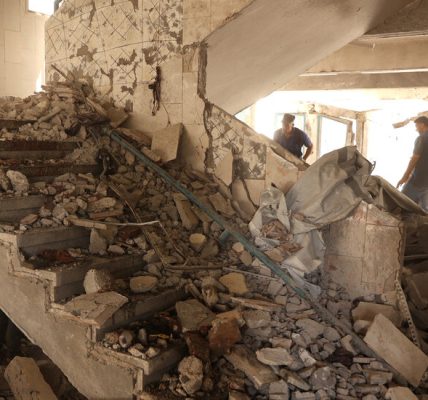The U.S. narco-terrorist problem: what exactly do we really need to know about drug trafficking in the United States?
One of the first things President Trump did when he took office was sign an executive order to designate the Mexican drug traffickers as terrorist organizations.
This raises fundamental questions. Is it possible that Americans who are part of the networks will also be considered narco-terrorists? We are talking about more than just the drug group, we are talking about other networks, such as money moving, arms moving, and other crimes that can be found within the US. There is a lot of complexity about where a cartel begins and ends. There is a dispersion of actors, organizations and relationships on both sides of the border involved in drug trafficking. To speak of narcoterrorists is to speak of something that is vague and ambiguous. “This term is political and not supported by concrete evidence,” argues Zavala.
Blazakis said that the designation would have a negative impact on the relationship between the US and Mexico. The designation of the criminal organizations as terrorists could jeopardize Mexico’s sovereignty, so the government has opposed it.
According to experts, the ability to bring what’s known as material support prosecutions would be the most significant additional tool. Under U.S. law, it is a crime to provide material support to a designated terrorist organization.
In the context of drug cartels, prosecutors could potentially use this charge against a whole range of actors, including cartel members, the street gangs in the U.S. that sell the narcotics, as well as anyone who provides financial or logistical support.
Some analysts note that U.S. companies that do business in Mexico routinely make payments to Mexican companies, some of which could be controlled by or affiliated with a cartel or cartel members. That could possibly expose those American firms to penalties.
Migrants could also potentially be swept up in material support prosecutions. Experts say some people pay to travel through Mexico or cross the U.S.-Mexico border with ties to the drug traffickers. And that could provide grounds for American authorities to keep those migrants out of the U.S.
There are questions about whether a terrorism designation by the US opens the way for military action on Mexican territory.
He said that the reason was to calibrate the list because he wanted to make sure that terrorist actors who were carrying out political acts of violence against civilians would be included on the list.
The Imaginary U.S.-Mexico Drug Wars: State Power, Organized Crime, and the Political History of Narconarratives
The cartel issue can’t be viewed in vacuum, said Maria Calderón, a Mexico scholar at the Wilson Center, a nonpartisan policy center in Washington, D.C.
“We need to see the security component of the U.S.-Mexico border relation ingrained with the trade and immigration conversation,” she said. The U.S-Mexico relationship is intertwined with three fields. You can’t separate them.”
Trump campaigned on promises cracking down on the Southern border, and stemming the flow of both drugs and people across the frontier. He also has threatened to impose tariffs on Mexico.
I am hopeful that Mexico will use this as an opportunity to sit down and talk with the Trump administration about the problems that they have in common, and say, ‘OK we have the actual designation.’ How is it that we’re going to we’re going to work together to address this issue?'” Calderón said.
Oswaldo Zavala (Ciudad Juarez, 1975) has specialized in Mexican narrative, and has an alternative vision of the narco phenomenon in Mexico. He thinks the image of the power of the Cartel is being sponsored by the State. The author of The Imaginary U.S.—Mexico Drug Wars: State Power, Organized Crime, and the Political History of Narconarratives (1975–2012), explains to WIRED that the war against drug trafficking is generally built on fantastical, contradictory and often absurd concepts, which gradually form an imaginary that presents drug trafficking in an alarmist manner.
Intervening militarily in Mexican territory with selective incursions aimed at damaging the cartels is something that has been on the US radar screen for some time now. But analysts argue that it would be a shot in the foot for the Trump administration.
El dafo del rom de 1964: La violencia de la cri’ia de Caldern
More than 100,000 people have been missing in Mexico since 1964, when the count began. This is an indication of the state of the country because the Nationalregistry of Disappearance and Unaccounted for Persons has exceeded this figure for months. Felipe Felipe Caldern, who took the army to the streets in order to stop the violence of organized crime, left most of these people missing.
“I think we still don’t fully understand that this violence has a clear class dimension. It’s not generalized violence, but systematized and directed at vulnerable sectors of society.
In this way, Mexico’s recent presidents have maintained a “peace and security” policy based on a militarized strategy, justifying it on the supposed operational incapacity of police corporations to confront organized crime.
